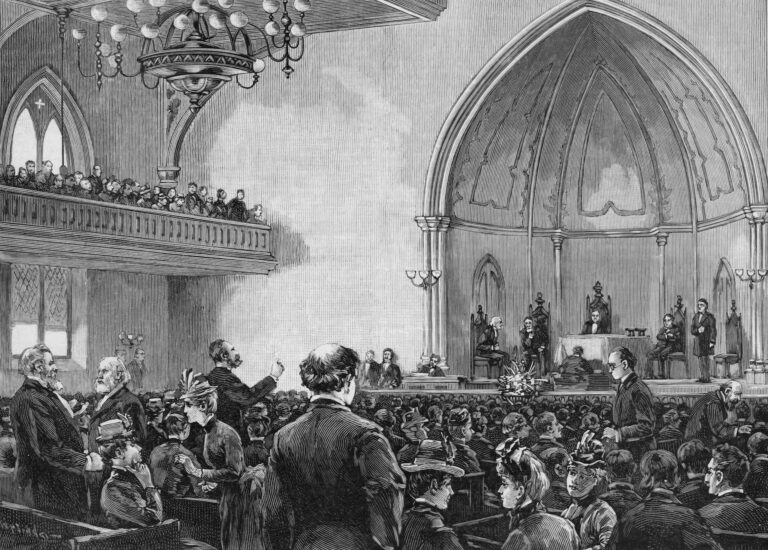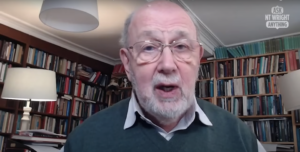It was a cold and gloomy late December afternoon when my family and I approached the Canadian border. We were mentally prepared for a more bitter winter than the ones we’d grown accustomed to in Chicago. Whenever we would reveal to someone that God was calling me to serve as pastor at a church in Saskatchewan, the response would be some incredulous variation of “Chicago’s not cold enough for you?” We were not only mentally prepared but materially equipped for the cold as well. Blessed by the kindness of an undisclosed giver, we had enough winter gear to start a small business. And after grinding through my first winter here, I can say that every bit of it was needed and very much appreciated.
However, what I was not prepared for was the tension and hostility I have observed between minorities (particularly the First Nation community) and the majority culture. Indeed, the bitterness of Canada’s winters is matched only by the racial resentment and animosity existing quietly within its borders.
Having arrived just six months ago, I am obviously no expert on race relations in Canada. However, as an African-American, I am well acquainted with the very real and unique challenges that confront minorities daily. Being married to a Caucasian woman, I’ve come to appreciate the formidable task of truly understanding someone from a different cultural background. I am passionate about racial unity and diversity—particularly that blessed brand of unity produced by the power of the gospel of Jesus Christ and beautifully expressed within the body of Christ, the church.
My intention is not to lay a burden of guilt upon the heart of anyone who reads this article. My sincere hope is to bring a holy awareness to my brothers and sisters in Christ in order that we might begin to see the grand opportunity before us to fulfill the Great Commission by making disciples of the nations.
Canada prides itself on its mosaic of cultural diversity. Yet there seems to be little interest among various ethnic groups to reach beyond their particular tribe and build meaningful relationships with people who are culturally and racially different. There is diversity without any real effort toward integration. Canada is presently and increasingly becoming a mission field. Canada, much like the U.S., is a land of the nations. Unreached people groups are represented by the family next door, the coworker on your shift, and the student sharing the same lecture hall. Followers of Jesus Christ can ill afford to allow the current cultural barriers to dissuade and intimidate them from reaching out to these people groups who may never have heard the gospel message. Here are three essential commitments Christians must be willing to make if we are to fully seize the opportunity standing before us.
1. We Must Be Committed to Non-Defensive Listening
It is astounding how angry and combative the public discourse has become in North America. The irony in this so-called age of tolerance is that people have become less and less patient with views and perspectives that either differ from or threaten their own. What has emerged is a society of defensive listeners. Believers, particularly those of the majority culture, must be willing to listen in the interest of learning and understanding. Please do not hear me saying that we are to shy away from our commitment to biblical truth. On the contrary, in this age of doctrinal compromise, there must be a clarion call for believers to hold firm to the truths of Scripture. The old adage is true in our day: People don’t care how much you know until they know how much you care.
2. We Must Be Committed to a Kingdom View of Current Issues
Far too many professing believers are reliant upon the dogmas of political analysts and media personalities as they think through the major issues confronting our world today. A.W. Tozer once rightly asserted that we can know the world’s values by taking Jesus’ Sermon on the Mount and turning it inside out. To become willing disciples of that value system is to have tragically lost sight of the Christian’s duty to expose its error. Does the unbelieving world inform your thinking on issues such as immigration or caring for the poor, for example? How might a responsible study of the Scriptures reform our ideas about the cultural norms and behaviours of certain people groups and ultimately lead us to repent in seeking to make them after our image and likeness? Believers must train themselves to think biblically about these issues. The believer’s views on life are to be other-worldly because the kingdom of God is other-worldly. The values and perspectives of the unbelieving world will never be compatible with the Christian worldview. Never.
3. We Must Be Committed to Erring on the Side of Compassion
The truth of the matter is we can find a million and one reasons to do nothing—to remain in our corner of the world while criticizing and pointing out the sins of other people groups. We can choose to be like the priest and the Levite in the parable of the Good Samaritan who decided to ignore the desperate need of the bruised and wounded neighbour. We can make excuses of how we might be taken advantage of or misunderstood and at risk of becoming bruised and wounded ourselves in our efforts to help. Or we can allow the Spirit of God to fill our hearts with the compassion of Christ—the compassion that throws caution to the wind and fulfills the law of love. This is the decision that is staring down our generation. How will we respond?
As I write these words, I am resting in my hotel room in Calgary, Alberta. I am enjoying a holiday with my family, reflecting on the six months that have come and gone. We could have returned to Chicago and allowed ourselves to be refreshed by the familiar faces and landmarks where so many memories have been engraved on our hearts. But Canada is our home now. God has called us here. He is at work in this place, healing racial animosity, building cultural bridges, and creating an atmosphere for the glorious gospel of his Son, Jesus, to flourish and have full expression. I believe that with every fibre of my being. And I am committed to joining him in the great work he is doing.




















